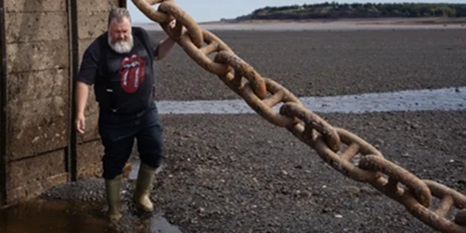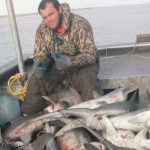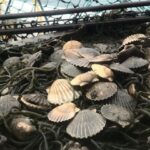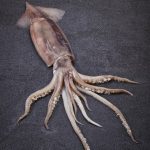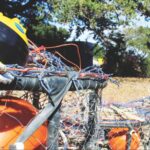Tag Archives: Transport Canada
N.S. swordfish harpoon fleet urged to bring tourists aboard to boost troubled sector
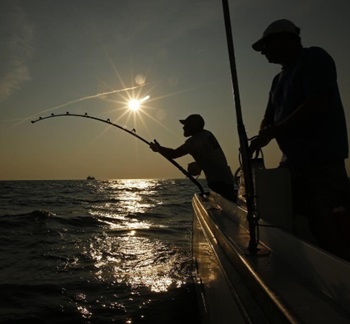 An environmental group says Nova Scotia’s commercial swordfish fleet could generate millions in added revenue by bringing tourists along for fishing trips and using different gear. The Ecology Action Centre says swordfish harpooning — lunging a long spear into the water to catch a fish — has become increasingly difficult and less economically viable because swordfish are appearing less often at the surface due to changing water conditions. In a report released Wednesday, the centre says changing ocean conditions are preventing fishers who use the traditional fishing method from fulfilling their already small swordfish quotas. The group’s solution is for the harpoon fleet to start using a single deepwater hook and line — called rod and reel gear — and to charge tourists to come aboard for a “once-in-a-lifetime experience.” more, >>CLICK TO READ<< 18:49
An environmental group says Nova Scotia’s commercial swordfish fleet could generate millions in added revenue by bringing tourists along for fishing trips and using different gear. The Ecology Action Centre says swordfish harpooning — lunging a long spear into the water to catch a fish — has become increasingly difficult and less economically viable because swordfish are appearing less often at the surface due to changing water conditions. In a report released Wednesday, the centre says changing ocean conditions are preventing fishers who use the traditional fishing method from fulfilling their already small swordfish quotas. The group’s solution is for the harpoon fleet to start using a single deepwater hook and line — called rod and reel gear — and to charge tourists to come aboard for a “once-in-a-lifetime experience.” more, >>CLICK TO READ<< 18:49
Gliders: Scientists add more underwater robots to monitor North Atlantic right whales
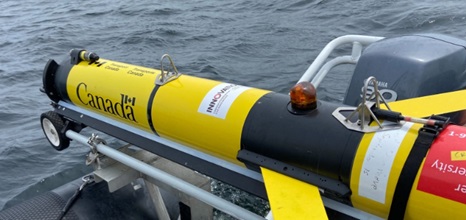 In the race to protect the endangered species, researchers are bringing in more underwater robots—unmanned vehicles known as gliders that slowly patrol the Gulf of St. Lawrence, passively listening for whales. Gliders can stay at sea for months, move far offshore and work in all types of weather. They’re equipped with underwater microphones that scientists use to track the animals. The team added a third glider to its fleet this summer, expanding its ability to monitor whales’ whereabouts by sea and air. It’s collaborative effort involving researchers from University of New Brunswick, Ocean Tracking Network, Transport Canada and Woods Hole Oceanographic. more, >>CLICK TO READ<< 19:37
In the race to protect the endangered species, researchers are bringing in more underwater robots—unmanned vehicles known as gliders that slowly patrol the Gulf of St. Lawrence, passively listening for whales. Gliders can stay at sea for months, move far offshore and work in all types of weather. They’re equipped with underwater microphones that scientists use to track the animals. The team added a third glider to its fleet this summer, expanding its ability to monitor whales’ whereabouts by sea and air. It’s collaborative effort involving researchers from University of New Brunswick, Ocean Tracking Network, Transport Canada and Woods Hole Oceanographic. more, >>CLICK TO READ<< 19:37
Canada, Nova Scotia move to improve fishing vessel safety
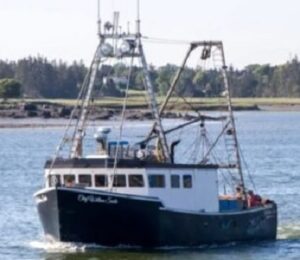 On the eve of the most lucrative fishery in Canada, federal and provincial authorities are ramping up fishing vessel inspections in Nova Scotia seeking proof of safety procedures and annual inspections of hoists and other lifting devices. Lobster season in southwest Nova Scotia opens in two weeks. Some of the increased scrutiny is being attributed to the sinking of the Chief William Saulis, a scallop dragger that went down in heavy seas near Digby in December 2020. All six men on board died. Transport Canada has served notice that its marine inspectors want to see written safety procedures on board and proof crew members are familiar with them. “Failure will result in a deficiency notice or detention of the vessel,” says spokesperson Sau Sau Liu. Video,>>click to read<< 07:08
On the eve of the most lucrative fishery in Canada, federal and provincial authorities are ramping up fishing vessel inspections in Nova Scotia seeking proof of safety procedures and annual inspections of hoists and other lifting devices. Lobster season in southwest Nova Scotia opens in two weeks. Some of the increased scrutiny is being attributed to the sinking of the Chief William Saulis, a scallop dragger that went down in heavy seas near Digby in December 2020. All six men on board died. Transport Canada has served notice that its marine inspectors want to see written safety procedures on board and proof crew members are familiar with them. “Failure will result in a deficiency notice or detention of the vessel,” says spokesperson Sau Sau Liu. Video,>>click to read<< 07:08
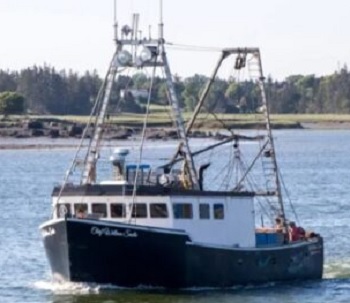
In aftermath of sinking, crew member’s widow says Transport Canada reform falls short
Transport Canada will tighten inspections of fishing vessels in the aftermath of a deadly Nova Scotia sinking in 2020, but the widow of a lost crew member says the reform doesn’t go far enough to prevent future tragedies. Six crew members died on Dec. 15, 2022, when the Chief William Saulis capsized as heavy seas crashed into the rocking boat and 2,700 kilograms of unsecured scallops slid around a deck, blocking drainage. But Michelle Nickerson-Forbes, the widow of Dan Forbes, said in an interview Friday that the federal department is failing to move on what she and other families consider a root cause of repeated fishing tragedies: unstable vessels going out to sea. >click to read< 07:58
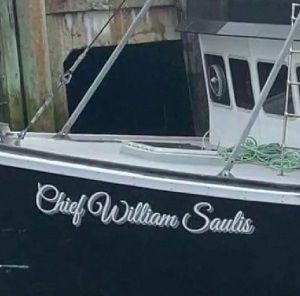
Ottawa accepts call for tighter fishing boat inspections in aftermath of N.S. sinking
Transport Canada says it will tighten inspections of fishing vessels in the aftermath of a 2020 sinking that resulted in six deaths off Nova Scotia’s southwestern coast. A March 22 report by the Transportation Safety Board of Canada concluded that the dragger Chief William Saulis capsized because 2,700 kilograms of unshelled scallops blocked the drainage system as high seas crashed into the boat. It recommended that Transport Canada inspectors verify whether required, written safety procedures are available to crew, such as methods to store catch in a way that doesn’t block drainage. Video, >click to read< 12:53
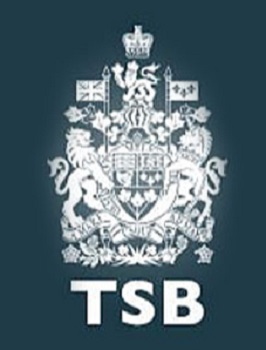
Amid fishing deaths, calls rise for small boats to have stability checks
After the Caledonian capsized off Vancouver Island in 2015 with three lives lost, the Transportation Safety Board called for all small fishing vessels to undergo a stability assessment and adhere to standards ensuring stability information “is adequate and readily available to the crew.” However, seven years later, Transport Canada says on its website that enacting the regulation would be “functionally challenging and prohibitively expensive for the industry.” The department declined a request for an interview with a senior official to provide further explanation. It’s a stance the Transportation Safety Board describes on its website as “unsatisfactory,” while a lawyer for the mother of a deckhand who died when the scallop dragger Chief William Saulis flipped over off Nova Scotia on Dec. 15, 2020 argues the federal government needs to act. >click to read< 11:50 – Search Results for “Caledonian” – fisherynation.com – Search Results for “Chief William Saulis” – fisherynation.com

Transport Canada – DFO issuing fishing licences in N.L. without checking boat registrations
An investigation into a fatal 2020 fishing accident in Newfoundland has prompted the Transportation Safety Board to call on the federal Fisheries Department to change the way it issues fishing licences. The board is asking the department to ensure all Canadian commercial fishing vessels are registered with Transport Canada before issuing fishing licences. Safety board chair Kathy Fox said Wednesday that an investigation into the sinking of a crab fishing boat that killed four men revealed that more than 4,000 fishing vessels in Newfoundland and Labrador were registered with the Fisheries Department but not with Transport Canada. > click to read < 12:01
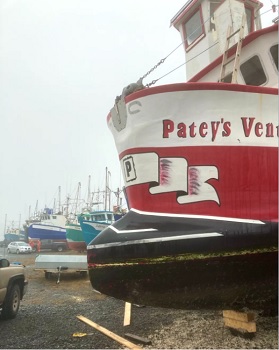
Eastern Canada: Engineers say ditching length limits would mean safer, ‘greener’ fishing boats
Engineers Canada, a national organization that represents professional engineers and engineering associations in each province has declared federal regulations of fishing vessel design an issue of importance. The Fisheries and Oceans rules that were built on the logic of limiting catch capacity have had “unintended consequences”, Vessel proportions have become extreme, with some boats more than half as wide as they are long. McDonald said if Canada is sincere about the goal of fighting climate change and is interested in enabling the fishing industry to adopt fuel-reduction strategies, the vessel length rule needs to be changed. Then there’s the safety issue. photos, >click to read< 14:51

Right whale protection measures to return ahead of migration into Canada
The federal government has announced its fishery and vessel management measures for the 2022 season to protect North Atlantic right whales as the endangered animals migrate into Canadian waters. Officials said in a statement Thursday the Fisheries Department will once again implement seasonal and temporary fishing area closures in the Gulf of St. Lawrence, the Bay of Fundy and other “critical habitat areas” where whales have previously been sighted. They also say Transport Canada is again enforcing vessel traffic measures, including speed restrictions for vessels over 13 metres long, throughout much of the Gulf starting on April 20 to better respond to right whale presence. >click to read< 08:29
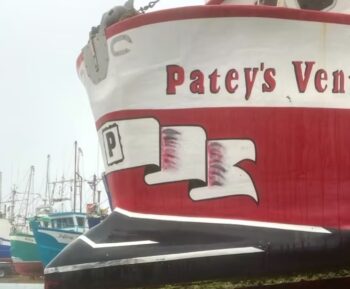
DFO’s vessel length restrictions are hurting business and putting fish harvesters’ lives at risk
Patey’s Venture has the look of a well-designed fishing boat, with smooth flanks meeting a nicely-curved bow. Yet there’s something amiss, an anomaly that’s as impossible to ignore as a missing tooth in an open-mouthed smile. For the Pateys, who needed a boat with some extra deck space to handle crab pots, it was more economical to buy and reconfigure a used boat than invest in a new boat. The Pateys had a licence that put them in the under-40 LOA class. Patey spent several thousand dollars to eliminate those two feet, “Our boat was an excellent boat. And when we … followed the regulations set by DFO we made her worse than she was,” photos, >click to read< 11:10
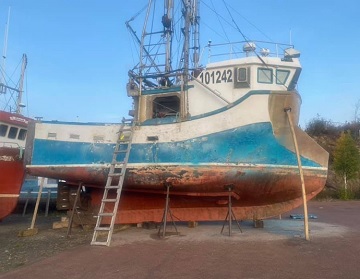
DFO forces fishermen to shorten boats, Transport Canada fines them for it
Seaward Enterprises Association of Newfoundland and Labrador (SEA-NL) takes issue with the sudden move by Transport Canada to come down like a hammer on inshore fishermen who’ve had fishing vessels modified or cut in length without advance approval. “Fishermen have been told for years by officials with Transport Canada, Fisheries and Oceans, and their own union that they didn’t need architectural drawings or advance approval to modify or cut a vessel to fish in the under 40’ fleet,” says Ryan Cleary, Interim Executive Director of SEA-NL. “Now the same fishermen are being told they will be locked up, and/or slapped with million-dollar fines if they didn’t do what they were told they didn’t have to do,” added Cleary. “Sounds to me like grounds for a class-action lawsuit.” >click to read< 13:19
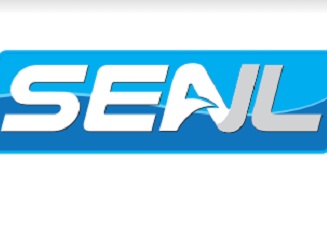
DFO and fishing vessel safety – A Damning Indictment of its safety culture
Fisheries and Oceans’ decision not to extend the halibut fishery in the Gulf of St. Lawrence for the province’s inshore harvesters who didn’t catch their quotas due to poor weather is a damning incitement of its safety culture, says Merv Wiseman, an outspoken search and rescue advocate. “DFO is telling fishermen if you don’t go to sea because of bad weather you’re going to lose your fish,”,,, “Putting extra pressure on fishermen to make decisions contrary to safety is a recipe for disaster that we’ve seen play out too many times.” A Transportation Safety Board report into the 2016 drowning of four Shea Heights fishermen found they took a risk in going out in questionable weather in order to land their weekly cod quota, and to recover fishing gear before deadline. >click to read< 07:34
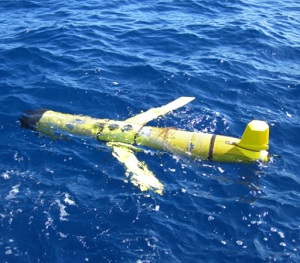
Underwater gliders will monitor North Atlantic right whales in the Gulf of St. Lawrence
The newest glider will carry a hydrophone, which can identify the calls of right whales and report their locations,,, “There is no one way to effectively determine where the whales are at any given moment when they are in the Gulf of St. Lawrence,” Fred Whoriskey said, “So we need to start blending our approaches.” Aerial surveillance is only good on sunny days with few waves, he said, adding that hydrophones mounted on fixed buoys have their limitations. “This year we are deploying gliders into the shipping channels,” he said. “They go down, listen and detect whale calls and come up to the surface periodically and broadcast information whether there are whales there or not.” >click to read< 11:25
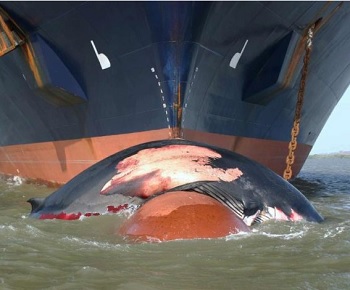
Transport Canada urged to enforce ship speed limits protecting endangered right whales
For the second year in a row, the majority of vessels passing through the Cabot Strait, between Newfoundland and Nova Scotia on Canada’s East Coast, are not complying with a Transport Canada voluntary slowdown request intended to protect critically endangered North Atlantic right whales in a key migratory passage. The Strait is also the primary route from the Atlantic Ocean to the Gulf of St. Lawrence and the country’s second-busiest port in Montreal. The voluntary initiative, established in 2020,,, >click to read< The National Marine Fisheries Service (NMFS) released a key report called a Biological Opinion yesterday – >click to read<17:20
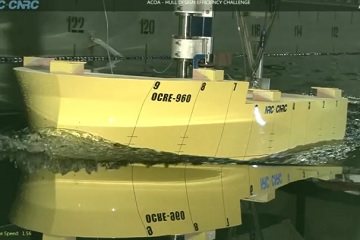
TriNav Marine Design’s battery powered fishing boat wins $500K efficiency competition
A marine engineering company based in Newfoundland and Labrador has won the grand prize of a government competition to design a more full-efficient inshore fishing boat in Atlantic Canada. TriNav Marine Design of St. John’s was one of three finalists,,, Henry Demone, a former CEO of High Liner Foods, chaired the selection committee for the competition, He said TrivNav’s design is more efficient but has similar characteristics to the type of vessels that fishermen use today. “We didn’t want to choose a winner that fishermen would have difficulty considering when they upgrade their vessels,” >click to read< 18:24
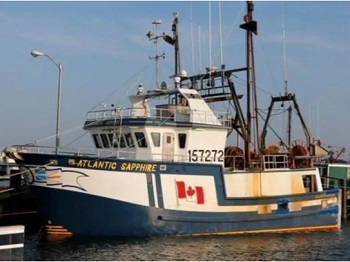
N.S. fishing vessel overloaded with fish, fuel, ice and freshwater at time of sinking
In its investigation report released Wednesday, the board said the Atlantic Sapphire should have been carrying no more than 41 long tons of cargo. When it sank around 11 p.m. on Dec. 13, 2018, the trawler was loaded with over 60 long tons, putting it about 46 per cent over capacity. “On the occurrence voyage, the crew caught a full load of fish in less time than on any other trip that year, so there was more fuel, freshwater, and ice on board than usual,” the report said. “The crew did not appreciate the risk to the vessel’s stability created by this excess weight,,, >click to read< 19:33

Canada outlines its 2021 measures to protect North Atlantic right whales
The Government of Canada remains committed to protecting the endangered North Atlantic right whale. To help prevent entanglements with fishing gear, Fisheries and Oceans Canada is building on last year’s successful measures by continuing to close fishing areas wherever and whenever North Atlantic right whales are present in the Gulf of St. Lawrence, Bay of Fundy, and Roseway Basin Critical Habitat,,, To help prevent collisions with vessels, Transport Canada will be re-implementing its 2020 season measures, including a restriction on vessel speed throughout much of the Gulf of St. Lawrence to protect areas where whales are detected,,, >click to read< 17:06
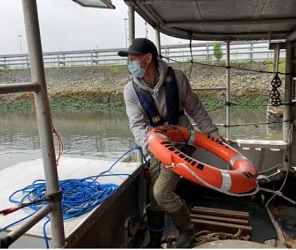
British Columbia – Crew Safety Training – Prepare And Protect your Crew from Coronavirus
WorkSafeBC and Transport Canada regulations set a high standard for training where emphasis is placed upon ensuring that both operational and emergency training occurs before work begins. In addition to this, COVID-19 has created new requirements for vessel owners and masters as they are now responsible for training crew on the vessel-specific protocols that are designed to protect the health of crew and the communities they interact with while fishing. >click to read< 13:45
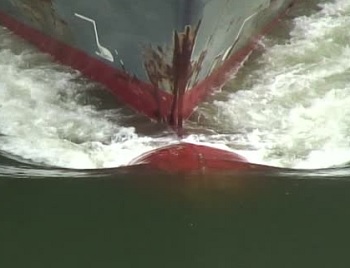
Ships not complying with right whale protections in Cabot Strait
Oceana Canada has released one week of results from its ongoing study, which is assessing data from vessels travelling inside speed restriction zones. Between May 19 and May 25, 72 per cent of vessels recorded passing through the strait between Newfoundland and Nova Scotia were observed travelling at speeds above the requested 10 knots, with the highest observed at 21.1 knots. The findings will be part of a fuller study to be released in July that will look at the first trial period of the speed restriction. >click to read< 17:55
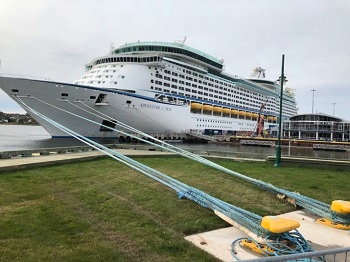
Asking? The Feds are asking!!! Fed asking ships to slow down in Cabot Strait to protect right whales
Transport Canada is trying a new voluntary speed limit in the Cabot Strait as a part of its plan to protect the endangered North Atlantic right whale.
First announced in February, the voluntary speed limit would see vessels over 13 metres long slow down to 10 knots in a portion of the Cabot Strait between April 28 to June 15 and Oct. 1 to Nov. 15.,, Another measure impacting the Cabot Strait and Gulf of St. Lawrence is the government’s push to get more marine mammal observers on board vessels throughout the region. Sanders said Transport Canada and the Department of Fisheries and Oceans are working closely with shipping companies, cruise lines and ferry operators to get trained observers on board. more >click to read< 07:03
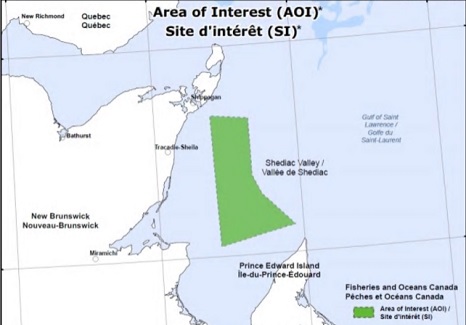
P.E.I. Fishermen’s Association want answers about new whale restrictions
Among the new rules, Transport Canada has identified a sensitive area off western P.E.I. that it’s calling the Shediac Valley. Boats won’t be allowed in unless absolutely necessary, but exact boundaries have not yet been set. “The coordinates won’t actually be set until after the whales arrive,” said Melanie Giffin, marine biologist for the association. “So we don’t actually know the location of that box until the whales are here and aggregating. So there’s still some confusion around that.” >click to read< 11:48
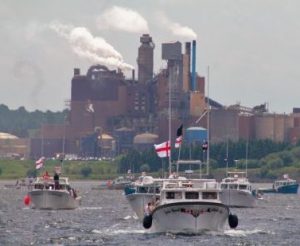
Nova Scotia communities await decision on contentious pulp mill pipeline
Allan MacCarthy, a fisherman based in Pictou County, said fishermen remain convinced the effluent would pose a threat to lobster, crab, herring and other species in the strait over time. His protests landed him in court last year when a temporary injunction was imposed ordering him to stop blocking survey activities by the company. “Until the minister announces it (the decision), there’s not much we can do. >click to read< 08:04
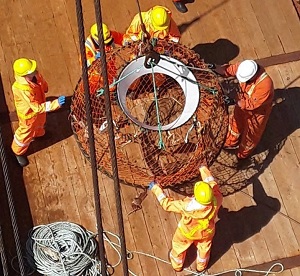
Canada-U.S. tensions expected to be big topic at right whale meeting Thursday
Canadian-U.S. trade relations and tensions around fishing regulations are expected to be top of mind Thursday at a discussion about North Atlantic right whales. Dozens of people from the fishing industry and conservation groups are in Moncton to meet with officials from Fisheries and Oceans Canada. ,, Hanging over Thursday’s meeting is the threat that in 2021, the U.S. could ban Canadian seafood imports if officials here don’t put in place equivalent protection for marine mammals.,, After six whale deaths had been reported by Canada by early July, NOAA Fisheries Assistant Administrator Chris Oliver requested an emergency meeting with Fisheries and Oceans and Transport Canada, urging immediate action. >click to read< 19:09
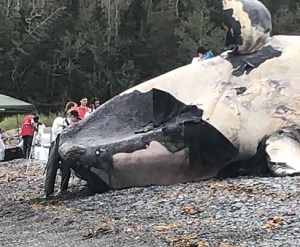
More needs to be done to identify travel paths of North Atlantic right whales, scientist says
The Canadian and U.S. governments need to know exactly where North Atlantic right whales are travelling to better protect them, a whale researcher says. “There have been whales in locations that the Canadian government may not have known about, at least early enough, ” said Charles (Stormy) Mayo, director of the North Atlantic Right Whale Ecology program at the Center for Coastal Studies in Provincetown, Mass. “It’s a very thorny problem and the more that Canada can do, the better off we are.” >click to read< 20:29
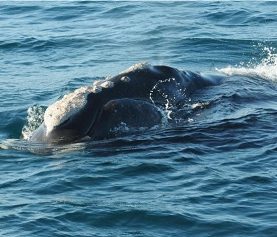
Transport Canada – New protective measures announced for North Atlantic right whales
Transport Canada has announced further protective measures in the Gulf of St. Lawrence for the North Atlantic right whale. The measures, announced Monday evening, include further reducing ship speeds in the area, increasing zones in which the speed restrictions will apply, increasing aerial surveillance and funding for initiatives to enhance marine mammal response. In 2019, there have been six whale deaths reported and on July 8, there were three North Atlantic right whales entangled in the southern waters of the Gulf of St. Lawrence,,, >click to read<21:03
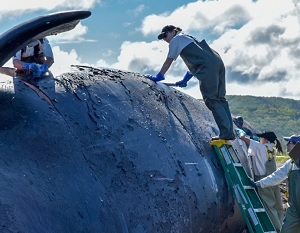
Transport Canada implements speed limits following death of another right whale
Transport Canada has implemented a speed restriction for vessels in the western part of the Gulf of St. Lawrence following yet another death of the endangered North Atlantic right whale on Wednesday. Fisheries and Oceans Canada confirmed a right whale was found dead on the shores of Anticosti Island near the Gulf of St. Lawrence, bringing the number of recent deaths up to five. Scientists are on scene collecting samples for analysis, and working with various partners to assess necropsy options, said a news release from the fisheries department. >click to read<18:07
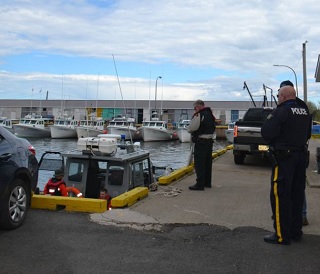
Community devastated by boat collision deaths
The community of Murray Harbour is in mourning after two men died during a collision between two fishing boats on Saturday, says a pastor from the area. Pastor Scott Herring, of Murray Harbour Baptist Church, said there’s a feeling of devastation that’s come over the community. Residents are showing their support to one another through phone calls and visits, he said.
“As a congregation, we held prayers for the whole community. People are reaching out to one another to offer supports behind the scenes, it’s happening in different forms,” he said. “But there’s devastation.” >click to read<17:38
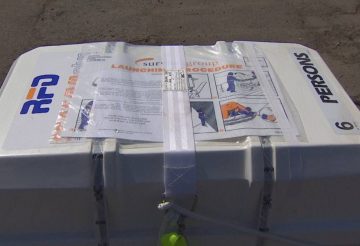
New safety gear needed for P.E.I. lobster fishermen, but supply comes up short
P.E.I. lobster fishermen will have some new safety gear on board when the spring lobster season opens at the end of April. At least, they are supposed to, after new federal safety rules came into effect last July. But the new fishery safety standards affect more than 22,000 Canadian boats and that has left many fishermen scrambling to get the gear they need. Under the new Transport Canada regulations unveiled in 2016, fishing vessels are required to have specific safety gear on board, including a life raft, survival suits and a location signaling device. >click to read< 18:10
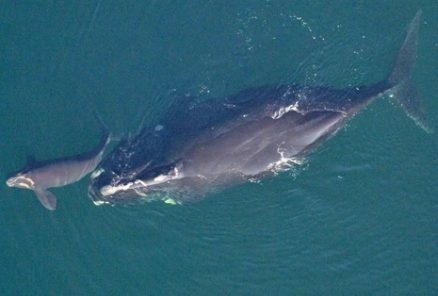
LeBlanc and Garneau announce plans for protecting North Atlantic right whales
Federal Fisheries Minister Dominic LeBlanc and Transport Canada’s Marc Garneau will announce plans this morning for protecting North Atlantic right whales.,, Earlier this year, LeBlanc announced new measures for the operation of the snow crab fishery in the southern Gulf of St. Lawrence to protect the North Atlantic right whale from entanglement. The changes include reducing the amount of fishing rope floating on the surface and mandatory reporting of all lost gear. The government also said it will most likely impose speed restrictions for vessels again this year, when the whales return to the gulf. >click to read<09:58






